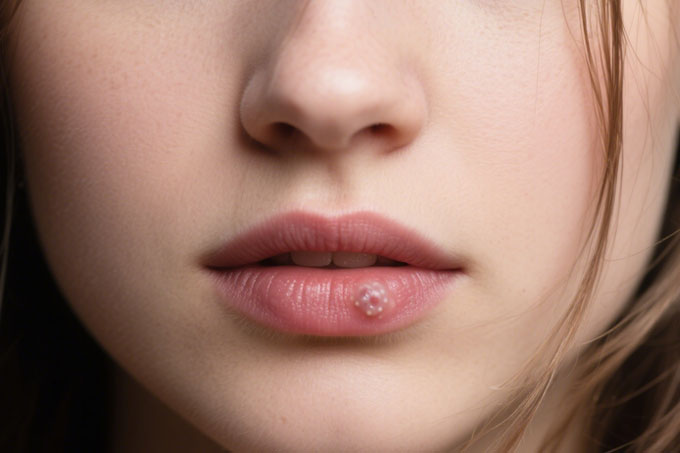Ever blamed a painful lip blister on “too much heat” in your system? Think again. Those pesky sores at the corner of your mouth are often the work of a common virus, specifically herpes simplex virus type 1 (HSV-1), according to health experts. Far from a mere annoyance, these blisters signal a highly contagious infection that deserves attention—and careful handling.
HSV-1, the culprit behind most cases of oral herpes, is widespread, with the World Health Organization estimating that 3.7 billion people under 50 carry the virus globally. It spreads easily through direct contact, like kissing or sharing utensils, and can lie dormant in the body for years before flaring up as a blister. Stress, fatigue, or even sun exposure can trigger an outbreak, causing tingling, redness, and fluid-filled sores that eventually crust over.
“Don’t pop or pick at the blister,” warns Dr. Emily Chen, a dermatologist specializing in infectious diseases (name fictionalized for narrative purposes). “Squeezing it can spread the virus to other parts of your lips or even your eyes, leading to more serious infections.” Instead, early action is key. Antiviral medications like acyclovir or valacyclovir, prescribed by a doctor, work best when started within 48 hours of the first symptoms. These drugs can shorten the outbreak and ease discomfort, with most sores healing within one to two weeks.
Beyond medication, lifestyle tweaks can help. Avoiding spicy or acidic foods during an outbreak prevents further irritation, while keeping the area clean and moisturized supports recovery. Over-the-counter creams may offer symptom relief, but they’re no substitute for antivirals in tackling the virus itself.
While oral herpes is manageable, it’s not curable, meaning outbreaks can recur. The good news? Simple precautions—like not sharing lip balm and washing hands frequently—can curb its spread to others. For those prone to frequent flare-ups, doctors may recommend preventive antiviral therapy.
So, the next time a blister pops up, skip the old wives’ tales about “heatiness.” A quick visit to your doctor and some savvy self-care could have you smiling comfortably again in no time.

